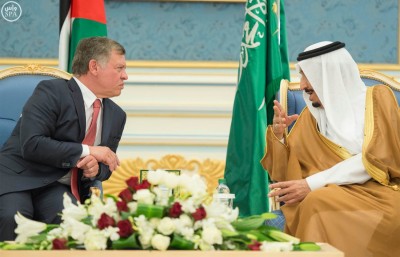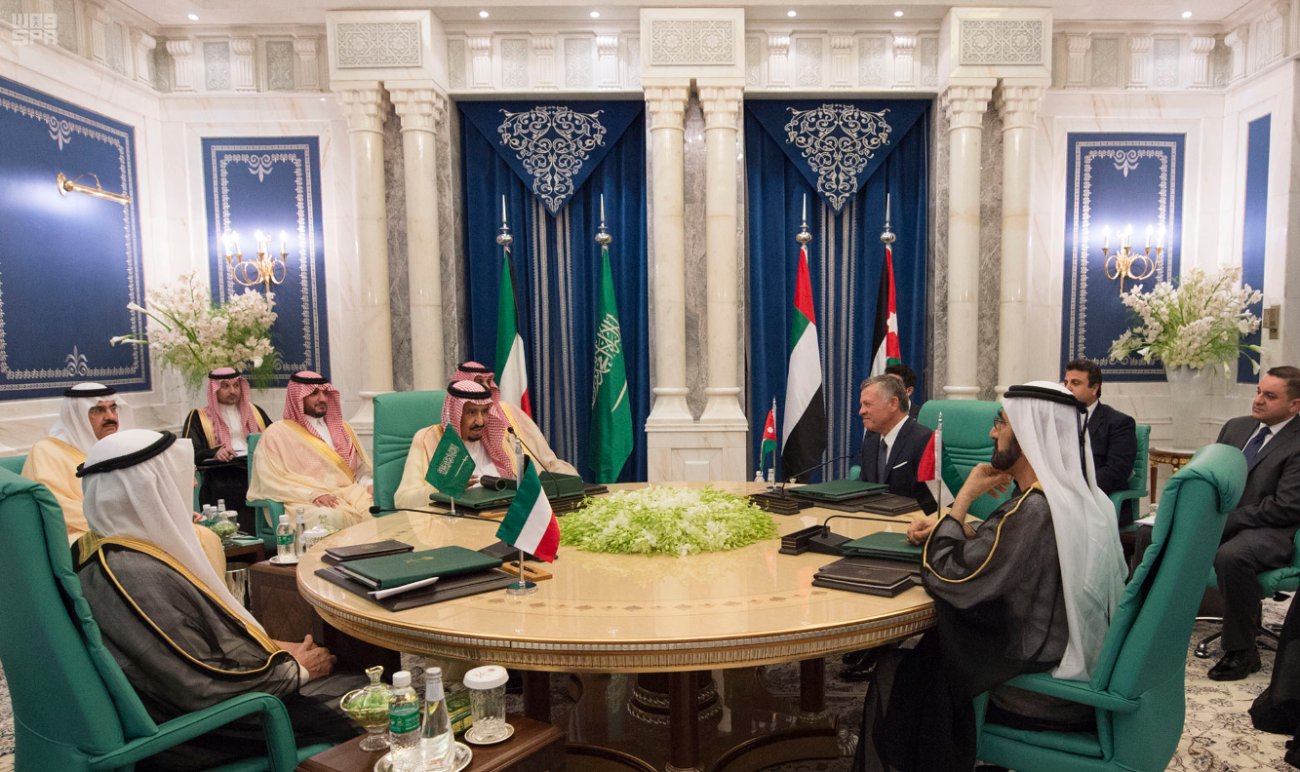Saudi Arabia and two Gulf nations agreed to a $2.5b aid package to help support Jordan’s economy after a proposed income-tax increase sparked some of the largest protests seen in the region since the Arab Spring protests in 2011.
The package of aid will include a deposit in the Central Bank of Jordan, guarantees to the World Bank on Jordan and annual support for the Jordanian government’s budget for five years, according to Bloomberg, which cited the Saudi Press Agency.
Saudi Arabia’s King Salman called a last-minute summit in Mecca following the outbreak of protests in Jordan, which was attended by Jordan’s King Abdullah II along with UAE’s Prime Minister Sheikh Mohammed bin Rashid Al-Maktoum and Kuwaiti Emir Sheikh Sabah Al-Ahmad Al-Jaber Al-Sabah.

King Salman and Jordan’s King Abdullah II.
Following the meeting, King Abdullah II offered his gratitude to King Salman, Kuwait and the UAE for their support. Jordan is struggling to curb its debt after securing a $723 million loan from the International Monetary Fund (IMF) in 2016. Austerity measures tied to the loan have seen prices of basic necessities rise across the Kingdom of Jordan — culminating in a week of angry protests over tax proposals that forced prime minister Hani Mulki to resign, Arab News reports.
Jordan, which avoided mass protests during the Arab Spring and is known for its relative stability in a tumultuous region, is a strong ally of Saudi Arabia’s and the United States.
Jordan’s King Abdullah II appears to have averted an immediate crisis, but as the Washington Post notes, he faces a difficult road ahead as he balances the need to address the country’s economic woes with the demands of an emboldened population.









